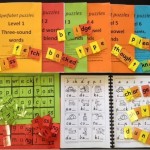Learning literacy is like learning to drive
0 Replies
Imagine you have just turned 18. You want to learn to drive. You’ve got your learner’s permit, and your cousin has offered to give you a free driving lesson. On the appointed day, she tells you to get into the driver’s seat. You’re a bit worried because she lives in quite a busy road. Oh well, she knows how to drive. She must know what she’s doing.
Then your cousin says ‘OK, let’s go out onto the main road, and turn onto the freeway’. You say ‘I can’t do that, I don’t even know how to work the clutch yet. Let’s just go up to the local shopping centre carpark. The shops are closed so there’ll be no-one much around. I don’t want to bump into anyone’.
She says ‘The shopping centre carpark? How boring. That’s not real driving. Come on, let’s go on the freeway’.
Are you going to take driving lessons from this person? Are you bored by the idea of kangaroo-hopping around a carpark? Who is bored here, the learner or the teacher?
Not natural: driving, reading or spelling
Your cousin’s problem is that she knows how to drive, but she apparently doesn’t remember how she learnt, and thus doesn’t understand how to teach driving. She is only thinking about how she drives now – effortlessly and apparently by instinct. But driving is not an instinct. Humans do not drive unless they are taught and have access to an invention – the car.
As author and literacy expert Rudolf Flesch pointed out over 30 years ago, efficient reading and spelling are complex processes that involve doing multiple things in a coordinated way, the same way that efficient driving is a process of turning the wheel, pressing the accelerator, brake and clutch, looking in rearview mirrors and so on. The efficient driver isn’t aware of doing these things. That doesn’t mean s/he isn’t doing them.
Likewise, the efficient reader/writer is mostly unaware of what s/he’s doing, as the process has become automatic. Most words are effortlessly comprehended and produced, and good readers don’t misread, ‘I put on my shoes and sots’, thinking the last word is ‘socks’. Only a poor reader misreads the last word as “socks”, for example if they are using a look-at-the-first-letter-and-guess strategy, as children are often encouraged to do (when I find the person who made this strategy up, there will be some shouting).
Literacy: taught not caught
Your imaginary cousin is behaving a lot like much of our mainstream education system. The system seems to think literacy is a human instinct, like spoken language, not an invention, like the car. That it’s caught, not taught.
The education system therefore often encourages very young children to go on the freeway (attempt to read real books themselves) before they know how to work the controls (how sounds are represented by letter patterns, and how to blend and segment words).
Start with decodable books and easy spellings
Reading schemes with controlled spelling patterns (like the ones on this list) are out of vogue, but they really help beginners, especially ones with speech and/or language difficulties, or particularly weak ability to discriminate sounds in words.
They strip back some of the complexity and let the learner practice working with the basic patterns in a manageable way, without running into, and being confused by, tricky spellings like the “u” in “busy”, the “e” in “pretty” and the “s” in “sugar” and “sure”.
Likewise, children are often encouraged to write hard words before they have mastered easy ones, which is particularly bad news for children with names like Leigh, Vaughan and Kajute.
Children should learn to write easy words first, and if they have a hard spelling in their name, be warned about it and discouraged from trying to generalise from it.
Learning is intrinsically motivating
If someone throws the “how boring” argument at you, remind them how much time little kids voluntarily spend doing things like hitting a ball against a wall, or going round and round in circles on a little bike with training wheels, in order to gain mastery of the skill.
Learning is only fun if you can do it, and learning at your own level is not boring, as long as you have a sense what you’re trying to achieve, and can feel yourself making progress.
Learner-drivers can still go on the freeway, as long as they are not in the drivers’ seat. Children who haven’t yet cracked the spelling code can still experience quality children’s literature, as long as someone else is reading it to them.



Leave a Reply